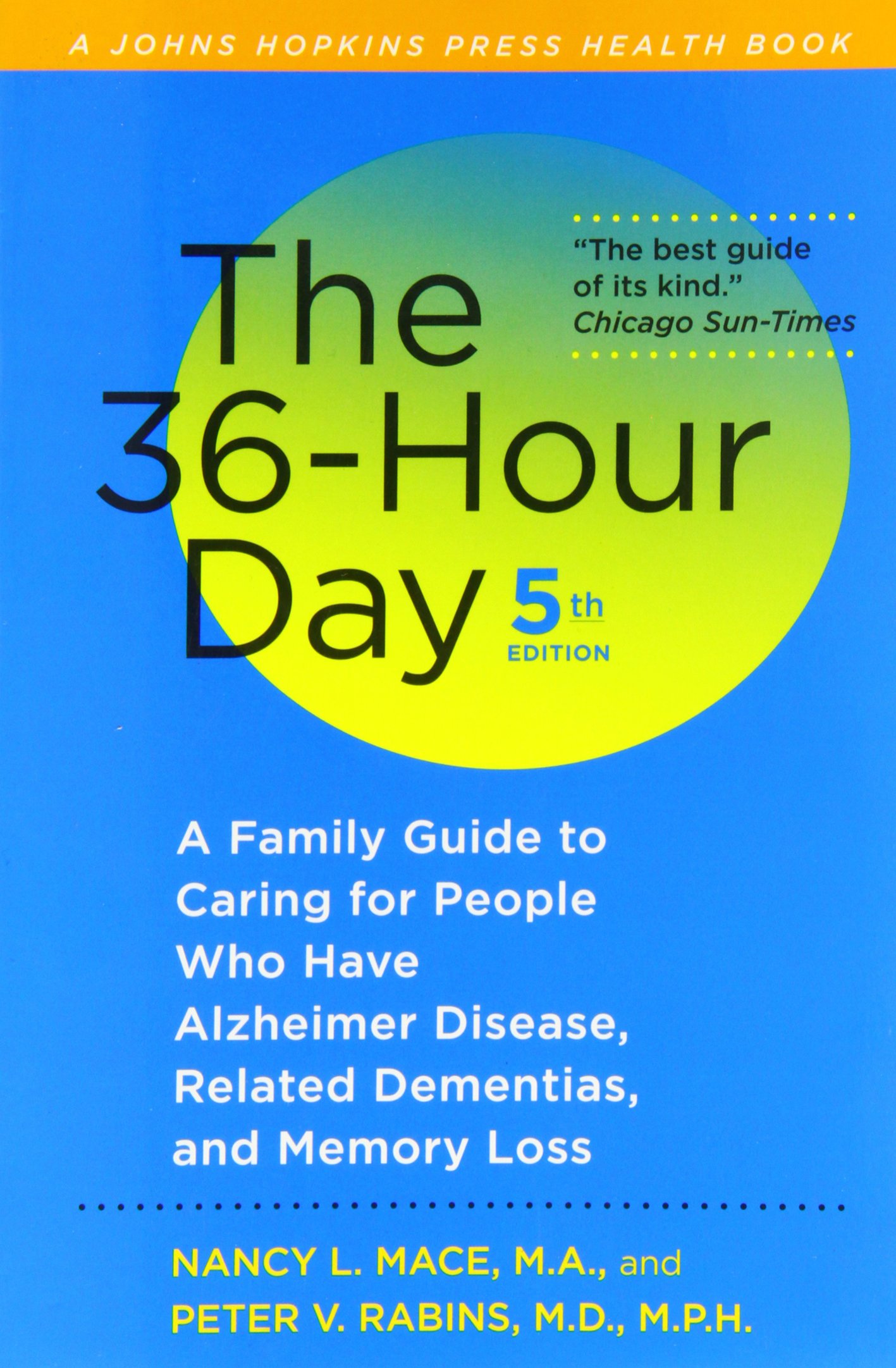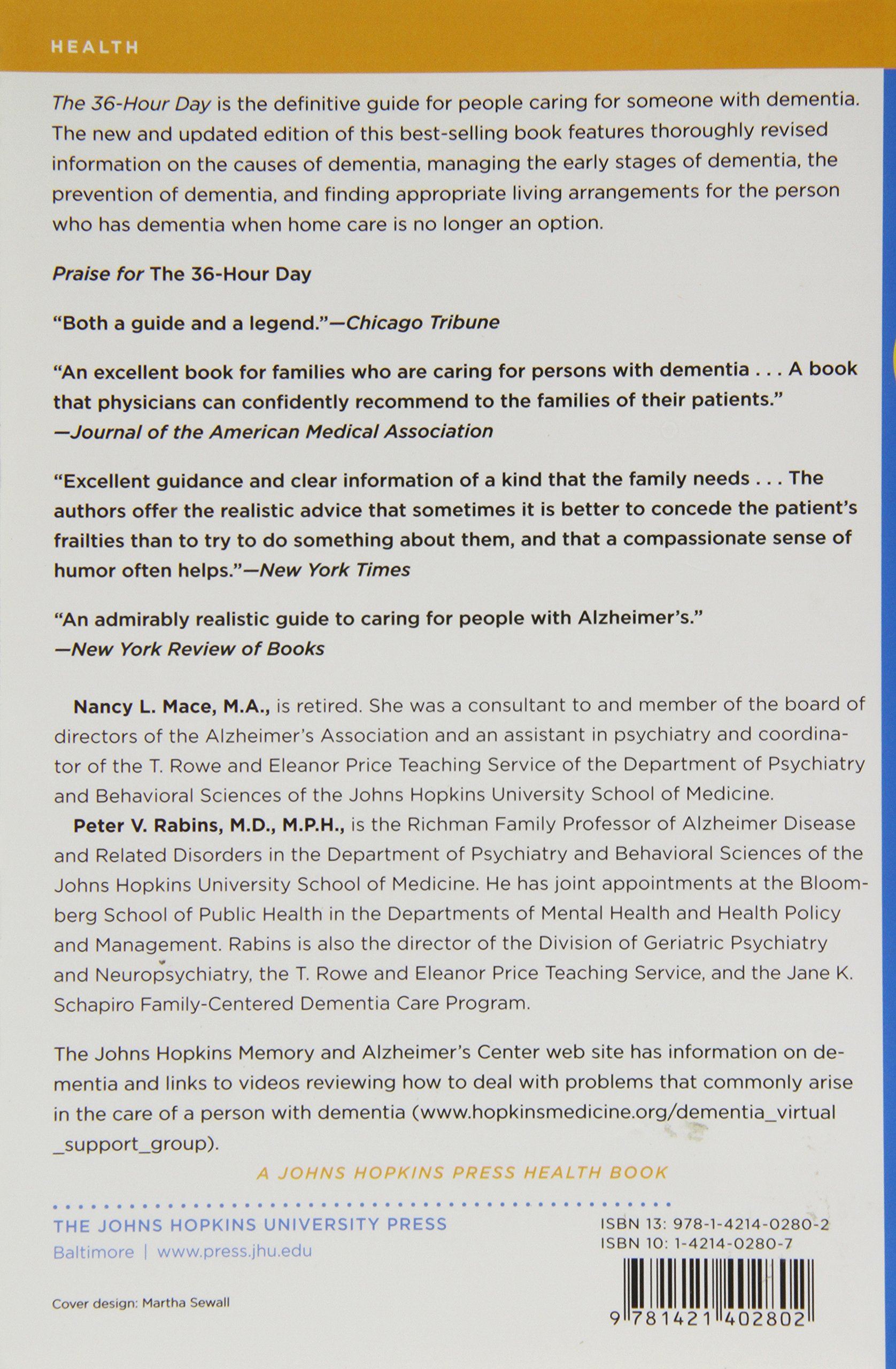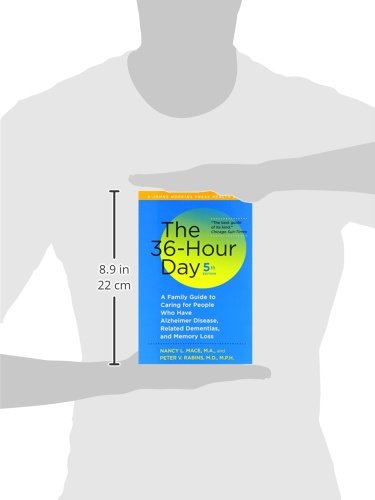Customer Services
Copyright © 2025 Desertcart Holdings Limited
Desert Online General Trading LLC
Warehouse # 7, 4th Street, Umm Ramool, Dubai, 30183, Dubai




The 36-Hour Day, fifth edition: The 36-Hour Day: A Family Guide to Caring for People Who Have Alzheimer Disease, Related Dementias, and Memory Loss (A Johns Hopkins Press Health Book)
J**S
Helpful tips for caregivers
I liked the helpful tips in this book for caregivers of disabled loved ones
M**O
Read This Book Before You Need It!
If you have ever had a conversation with a parent, grandparent or other elderly relative and thought "Wow! That was strange!" then add this book to your cart now!As someone who has cared for the elderly for many years, I am embarassed at how little I knew about dementia. I am even more embarassed that I did not recognise it in my own mother. I am only partly through the book, and I already recognise almost every characteristic and incident. I now realise that the signs were evident in my mother 2-5 years before her decline (which I now see was not so steep as I thought) and also in the many people I have cared for over the past 20 years, though my clients were all felled by other illnesses before the dementia had progressed.This is a fascinating book and a true roadmap to where you have been and where you are headed. It is sympathetic, and helps you recognise that the person you are caring for is still there, even if not in the form you recognise - and we do need to be reminded of that. The authors are careful not to de-humanize the subject or the carer, and they acknowledge the frustrations both will experience. The best thing it does is point out there can be times of genuine quality - it's not always a long dark tunnel.I don't know if dementia is inevitable given the longer life expectancy, or if (as some European researchers suggest) it is the result of growing up during The Great Depression and World War II, due to the scarcity of nourishing food early in life, but it is something we Baby Boomers must educate ourselves about.
S**Y
Excellent Guide!
If you at the end of your tether, please consider this book before you edge too close to the cliff of completely losing your mind.This book helps you CHANGE how you react to, instead of changing the Alzheimer's patient, who cannot change.
A**I
More helpful than other guides
This book is hard to get through, primarily because there are sections describing the suffering of dementia from the patient's perspective. When you're already grieving this diagnosis, it feels even worse to read paragraphs upon paragraphs of terror and isolation, of course imagining your own loved one going through the same thing.The sections on how to cope as a caregiver are dry but informative. A difficult truth about dementia is that you can't predict which symptoms will appear, so this book covers all of them. And it goes over some of the science behind the more frustrating symptoms, like when the patient is in total denial about their condition, which definitely helps the caregiver cope.They say this book is the bible of caring for a loved one with dementia/Alzheimers. I wish it was easier to navigate but it's definitely the most helpful guide I've read so far.
U**D
Saves me through my darkest days.
Hit me right in my feels. Like the author was living my life.
A**I
Nothing out tehre better!
I have worked in pastoral ministry for well over 35 years. I have been through multiple scenarios with friends and family. I have been a secondary caregiver and primary with my mom, both my in-laws, in ministry and with many of my friend's parents. I have experienced care-giving for issues from stroke to Alzheimer diagnosis, to brain damage from a fall. And my sister is a care administrator and has dealt with aging and healthcare for years. She first introduced me to many books when I first started visiting "nursing homes" many years ago. THIS book has been the most helpful along the way. It is useful as a study text and as a pragmatic aid for caregivers. One can read the entire thing, read only select passages, or a paragraph here and there. All are helpful. I have not seen or read anything more comprehensive or helpful. And as the book suggests, as a person with dementia ages and moves along the path of dementia, it is wise to re-read over and over again as the scenarios change. Every person is different, every scenario is different. I suppose that is a reason I should not be amazed at the one star reviews. Everybody is different. I just wish they would say what they found that was better. I would certainly read it!
S**C
Their feelings
What’s happening to their body and soul makes it easier for a dementia’s patient care. Controlling your emotions and understanding what they are feeling makes you a better caregiver.
A**R
How to deal with Alzheimer’s disease
Good explanation, what to expect and how to deal with it.
R**.
No 36 Hour Day
Very good book for caregivers to read. Gives lots of information about dimentia and how to cope with such a patient. Deals with issues very well with.
V**I
Helpful
A great book for anyone who has a member going through this terrible disease. It is worth the read as it explains many behavioural patterns and can help you anticipate some problems. More than that it can also mentally prepare you.
L**E
A huge help.
Excellent book, very thorough. Every care giver for a person with dementia will find help here. One question they did not answer, hopefully which will be in the next edition. How do you manage a person in the early stages of dementia who is completely uncooperative with all treatment options and suggestions..
J**O
Dementia: A Tough Subject handled Brilliantly for Carers and D-Sufferers alike
A BIG thank you to Johns Hopkins Press, not to mention Nancy Mace - the author, who produced a gentle but no-holes-barred account of how to deal with a loved one's ever deteriorating condition when it comes to this terrible set of diseases commonly known as 'dementia' or 'alzheimer's' (even though those who deal with this depressing situation know full well it is a cluster of diseases, cognitive impairments and etc and not really something neatly fitting under either the term 'dementia' or 'alzheimer's' etc). The suggestions boil down, really, to only one (and then that one is developed in a variety of ways): as a carer you must learn HOW to 'step away' from the sadness, madness, anger, despondency that you may feel once the disease(s) truly take hold. It is a mad race between hoping / praying that a cure or at least something that will stop the progression of the diseases will emerge, whilst simultaneously watching your loved one get more or more distracted as the drugs begin to fail to work (or maybe never work). The most important think really is to be gentle both on yourself and on the person affected directly, trying to see things from their, now increasingly limited perspective. This will allow you to give them greater scope for 'quality of life' - and it will allow, interestingly too, a way in which 'humour' can creep back into your daily lives. This may sound absolutely incredible (as in not believable), but humour does come back into the picture when you learn how to stop getting mad at the person for not doing x, y, or z (and infact realising that many have been 'mad' at their loved ones as they translate their own horror and sadness into trying to get the person they knew and still love and still know in some ways, to keep moving, to keep thinking, to keep doing). The only other thing I would recommend as highly as this book is the Alzheimer's Reading Room - a brilliant online environment in the states, accessible world wide, that keeps one up-to-date with all drug trials, discussions etc. Love to all and DON'T GIVE UP, not the least on yourself and on your loved ones. This book helps you carry on and, even better, begin to deal effectively with a very tough reality. HIGHLY RECOMMENDED.
User
Excellent
An excellent overview of a very large topic. I recommend it to anyone who is facing caring for someone with dementia. Very practical and a comprehensive list of resources
Trustpilot
4 days ago
3 days ago